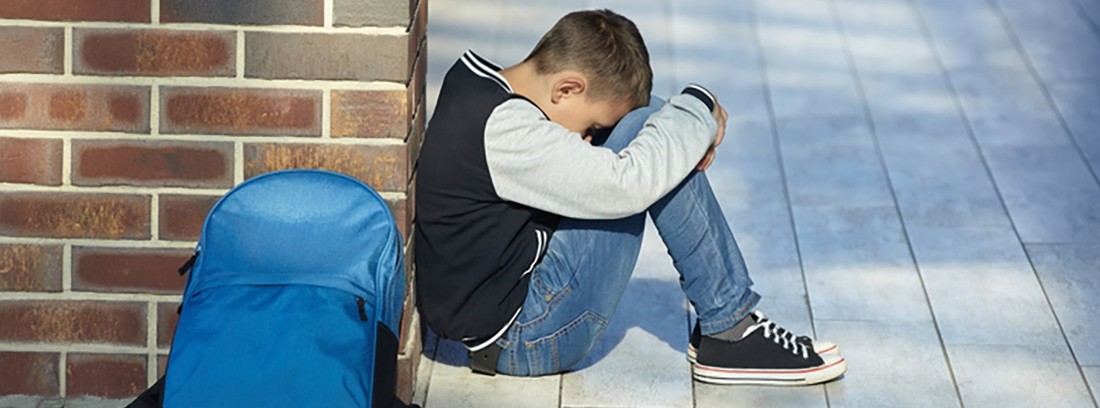Bullying: everyone’s business

What do we understand by bullying?
Bullying or harassment is a relationship of abuse or mistreatment between students that occurs in the school context. We can say that we are facing a problem of bullying when a student is repeatedly exposed, and over time, to negative actions by another or other students. These negative actions are intentional and the student victim is intimidated and defenseless, immersed in a dynamic that he has not caused and without the ability or the tools to be able to handle or solve it himself. It is a phenomenon that occurs indistinctly, although with different modalities, in students of both sexes; at all socioeconomic levels and both in public and private educational centers. The age group with the highest incidence is between 11 and 14 years old.
How does it manifest?
The most common negative actions used by students who mistreat their classmates usually consist of direct or indirect verbal acts, such as insults, teasing, the use of derogatory nicknames or nicknames, badmouthing behind their classmates, sending rude notes or spreading false rumors that can damage your identity or reputation.
Another modality of the is based on physical actions, for example, hitting, hitting, pushing, intimidating, threatening, hiding or breaking objects of the student who suffers this type of abuse.
It can also be manifested with the purpose of hindering the necessary integration into his peer group, deliberately excluding him from activities or games, preventing his participation, forcing him to do things he does not want, ignoring him or isolating him.
How can you tell if your child is being bullied?
First of all, it is very important not to be alarmed at any signal and to take enough time to make an accurate assessment of what is happening.
It should also be borne in mind that it is normal for a boy to fight from time to time or for jokes to be made between colleagues, all sporadically, without bad intentions and without significantly detrimental consequences on the safety or self-esteem of the child. guy.
On the other hand, depending on the personality characteristics of the boy and the girl, we will find different cases. There will be children who, without difficulty, will make the situation known openly to their parents in search of help and support. But another very common reaction is to shut it up and live it alone because of the feeling of shame, feeling weak and cowardly for being enduring this situation and for not knowing how to defend and face it.
In cases where the boy does not express it directly, there are certain signs of suffering or stress that may indicate that he is suffering from a possible situation of bullying. Some of these signs to watch out for are:
- Significant changes in your eating or sleeping habits: having nightmares, waking up startled, showing difficulties in falling asleep, being afraid of the dark, losing your appetite, ...
- Frequent complaints of pain or somatization: complaining of headache or stomach pain, ...
- Changes in routines: resisting going to class, taking different routes to the usual ones to go to school, not wanting to take the usual public transport, asking to be accompanied, running away from school, wanting to be distinguished from extracurricular activities, not wanting go on excursions, ...
- The signs of possible fights or beatings: coming home with bruises, wounds, or scratches, showing up with clothes or school supplies torn or damaged ...
- Significant changes in academic performance: concentration difficulties, lack of motivation for studies, stop doing homework, suspend, ...
- Changes in your attitude or your usual state of mind: being agitated, anguished, irritable, fearful, insecure, pessimistic, introverted, ...
How to deal with bullying?
Take note: The attitude of parents, whether their child has openly explained the problem to them or if they have had to investigate it, must be one of unconditional support and understanding at all times. The willingness to listen to him, encouraging him to relate his experience in detail, will motivate the boy to present it more clearly. It must be taken into account that it is being a very difficult experience for him, with which he has to perceive that it is also given importance and that a commitment to help and support is assumed in solving the problem. In this sense, it is essential to show him confidence and make him feel protected. Never ridicule him, blame him for what is happening to him, or tell him that he must learn to fix it on his own.
Seek collaboration. The school must be informed of what is happening, contrast that information with what the teachers or tutors have been able to detect and work collaboratively in taking measures and monitoring the situation. It is the school's obligation to ensure the safety of its students.
Help your child directly. A boy who is being or has been exposed to a situation of bullying will have weakened his self-esteem and will tend to feel insecure, with which it will be necessary to help him recover. To do this, it is important to show affection, make him feel valued, and support him. You should also take time to talk with him, giving him a space in which he has the opportunity to share his daily experiences. An effective measure is look for hobbies, activities or hobbies that you can feel proficient with, Through the performance of which you have, at the same time, the possibility of expanding your network of friends.
Finally, teaching and practicing with him new skills and alternative ways of dealing with similar difficult situations may be ideal for improving his safety and as a prevention of future problems.
If it is perceived that family support is not enough, it will be advisable to seek the professional help of a psychologist, to ensure that the child regains the necessary self-esteem and self-confidence for his development.
(Updated at Apr 14 / 2024)